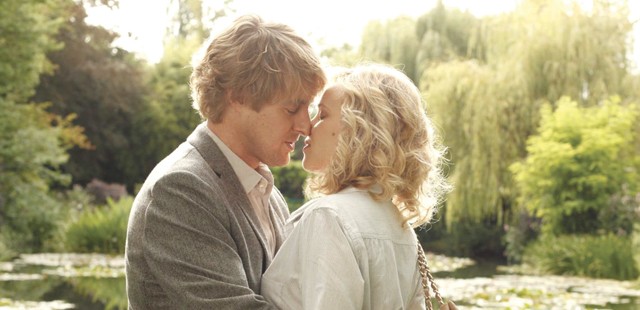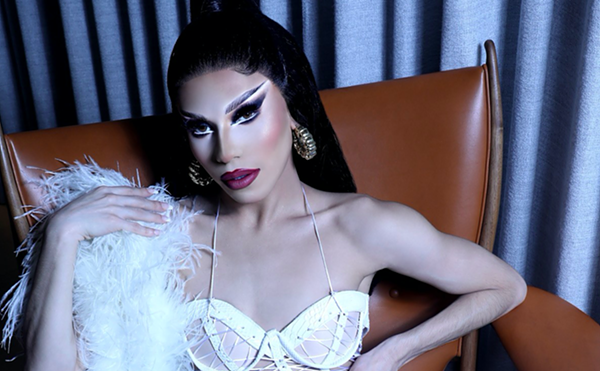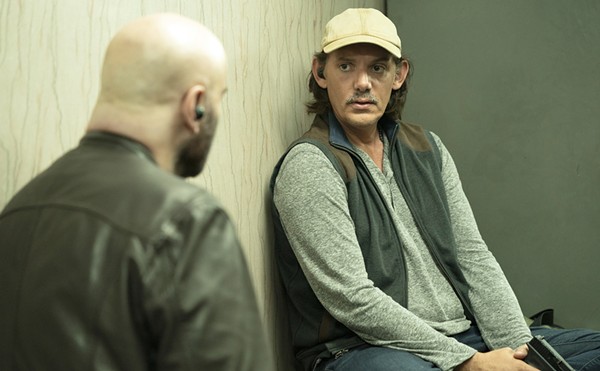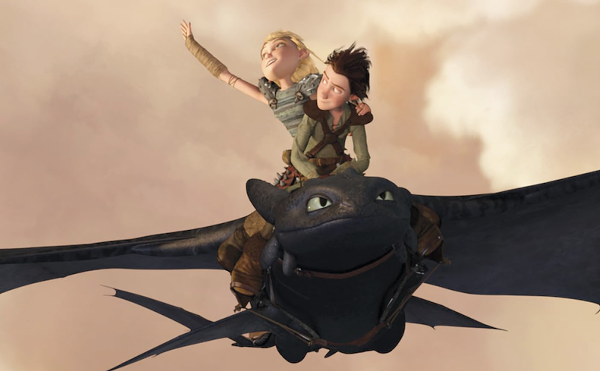Midnight in Paris
Writ. and dir. Woody Allen; feat. Owen Wilson, Rachel McAdams, Marion Cotillard, Corey Stoll, Kathy Bates, Adrien Brody. (R)
In “A Twenties Memory,” a story that appeared in his 1972 collection Getting Even, Woody Allen sends up Ernest Hemingway’s memoir A Moveable Feast by imagining his own feckless signature self hanging out in Europe with legendary expatriates. “We had great fun in Spain that year,” he writes, “and we traveled and wrote and Hemingway took me tuna fishing and I caught four cans and we laughed and Alice Toklas asked me if I was in love with Gertrude Stein because I had dedicated a book of poems to her even though they were T.S. Eliot’s … ”
Four decades later, Allen revisits that droll premise with Midnight in Paris, an unremittingly delightful demonstration that the past is never past or even what we think it was. In this film, the fretful Allen shnook is Gil Pender, played by Owen Wilson with Woody’s familiar deadpan stammer. A successful screenwriter who is eager to sacrifice affluence for art, Gil describes himself as “a Hollywood hack who never gave literature a real shot until now.” Inspired by fables of the Lost Generation, he has arrived now in Paris with the manuscript of an unfinished novel. “You’re in love with a fantasy,” complains his fiancée Inez (Rachel McAdams), as though love were not itself a fantasy. Intent on resuming a conventional life back in Santa Monica, she does not share Gil’s passion for either Paris or art. Her wealthy, overbearing parents, right-wing Philistines, shadow them during their stay in the French capital. So, too, do a couple Inez knew in college; Paul is pompous, and Carol is pretentious. Shaking their company in order to commune with the Paris of his literary dreams, Gil goes off by himself through the nighttime streets — and somehow ends up at a party where a pianist is singing Cole Porter tunes. It is Cole Porter.
Midnight in Paris becomes an English major’s whimsy, in which a surrogate for the viewer finds himself conversing with T. S. Eliot and Scott and Zelda Fitzgerald and dancing with Djuna Barnes. Ernest Hemingway challenges Gil to box him, and Gertrude Stein offers to edit his manuscript. The artists he encounters include Pablo Picasso, Henri Matisse, and Salvador Dalí, played with panache — and an extra oomph on the í — by Adrien Brody. Gil falls in love with Adriana (Marion Cotillard), an art groupie who has slept with Georges Braque, Amedeo Modigliani, and Picasso but is smitten by the first sentence in the American stranger’s own attempt at fiction. Returning to his hotel room and his unremarkable fiancée each night, Gil is almost as deflated as Mia Farrow’s movie-mad Cecilia is when, in The Purple Rose of Cairo, she must leave the enchantments of cinema for her drab domesticity in Depression-era New Jersey. Midnight in Paris plays on a similar conflation of reality and fantasy. But Gil remains rapturous with the prospect of returning the next day to the 1920s.
For several minutes preceding the opening credits, before we encounter any characters or dialogue, tour-book images of Paris — the Eiffel Tower, Notre Dame, the Arc de Triomphe, the Louvre, the Sorbonne — float across the screen accompanied by a lilting jazz score. Midnight in Paris is Allen’s valentine to the French capital much as Manhattan is his love letter to the vibrant New York borough. Notoriously allergic to anything beyond the East and Hudson Rivers, Allen has in recent years taken his clapperboard into London and Barcelona. Beside the fabled Seine, he has Gil gush over major cities as complex, communal works of art, and in France’s premier metropolis, Gotham’s most dedicated filmmaker has found another urban muse. A beautiful museum guide is right at home on the Paris set; she is played by Carla Bruni, wife of French President Nicolas Sarkozy, and when she discusses Auguste Rodin’s romantic inconstancy, it is hard not to think of Bruni’s husband’s randy rival, Dominique Strauss-Kahn.
Some might fault Allen’s postcard vision for ignoring the realities of urban blight and racial discord. But this is a Paris of the imagination, and the film is an affectionate but critical examination of its magnetic effect on an American besotted with a mythical time and place. In her turn, Adriana, who actually lives in 1920s Paris, yearns to inhabit la Belle Epoque, an earlier, more elegant era in which it was possible to share a table at Maxim’s with Edgar Degas, Henri de Toulouse-Lautrec, and Paul Gauguin. Midnight in Paris, whose title echoes fairy tales in which the stroke of twelve summons forth another realm, conveys the bittersweet lesson that bliss is always elsewhere.
But that itself is a platitude worthy of the movie’s Hemingway, who, as aped by Corey Stoll, is a Gatling gun of manly aphorisms, mostly lifted from the author’s own books. “You’ll never write well if you fear dying,” he advises Gil. But the opposite is just as true; all great art is a salve against mortality. Out of the burbling caldron of his own meshugass, Woody Allen has created something that will outlive us all.















